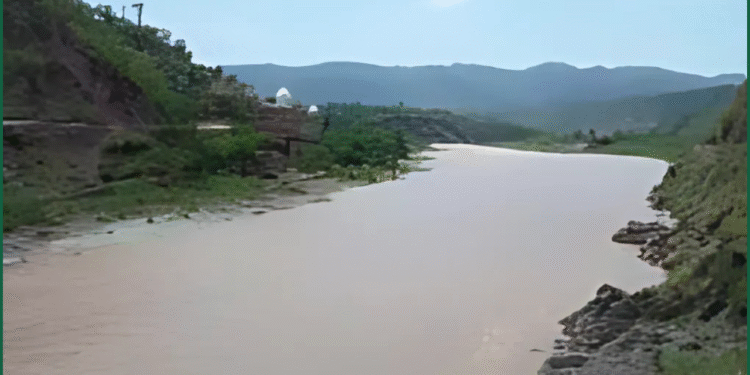A sudden surge in the Jhelum River’s water levels has raised alarms in Pakistan, following an unannounced release of water from Indian-administered Jammu and Kashmir. The river, now flowing at 22,000 cusecs through Muzaffarabad’s Domel area, has triggered flood warnings, with local authorities urging residents to avoid the riverbanks due to the risk of inundation. This development has intensified concerns over water management and regional stability.
The abrupt water release comes on the heels of heightened tensions between India and Pakistan. Recently, a deadly attack in Pahalgam, Indian-administered Jammu and Kashmir, claimed 26 lives and injured several others at a tourist hotspot. India’s government, led by Hindu nationalists, quickly pointed fingers at Pakistan without evidence and declared a suspension of the Indus Waters Treaty, a 1960 World Bank-brokered agreement governing shared river resources. The treaty has long served as a framework for cooperation, despite the nations’ fraught history.
Pakistan condemned India’s unilateral decision as a breach of international norms, warning that any disruption to its water supply would be treated as a grave provocation. The National Security Committee of Pakistan issued a resolute statement, underscoring that water is vital for the survival of its 240 million citizens. The committee described any attempt to restrict Pakistan’s water share as tantamount to an act of aggression, vowing to safeguard the nation’s resources at all costs.
The Jhelum River’s rising waters have amplified fears of flooding in vulnerable areas, with communities along the river bracing for potential damage. Environmental experts caution that such unannounced discharges could destabilize ecosystems and exacerbate humanitarian risks. Meanwhile, diplomatic channels remain strained, as Pakistan calls for dialogue to uphold the Indus Waters Treaty and prevent further escalation.
As both nations grapple with this crisis, the international community watches closely. The treaty’s suspension and the Jhelum’s surge underscore the fragile balance of water security in South Asia, where rivers are lifelines for millions. Observers urge restraint and renewed negotiations to avert a deeper conflict, emphasizing that cooperation over shared resources is critical for regional peace.

















































